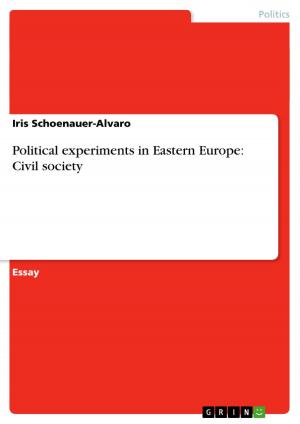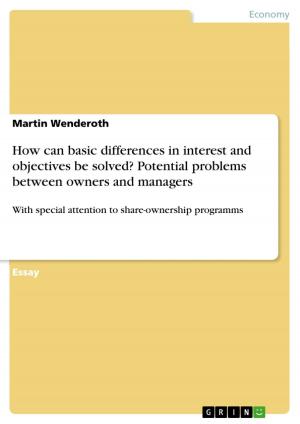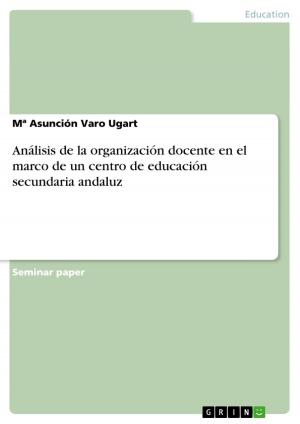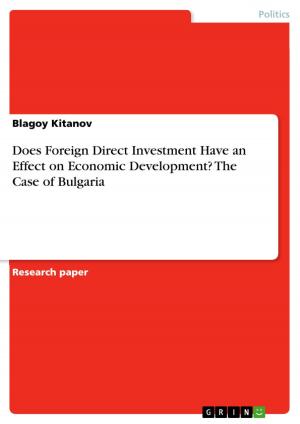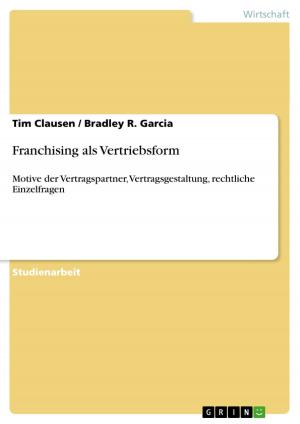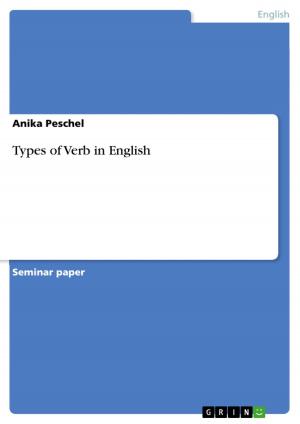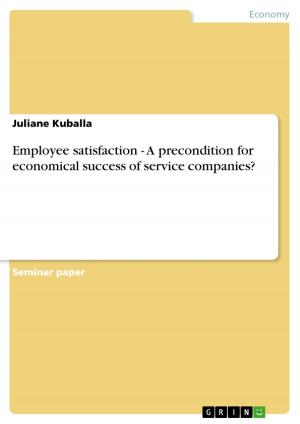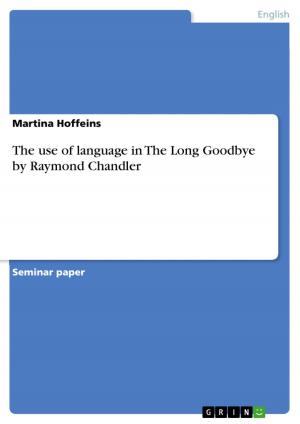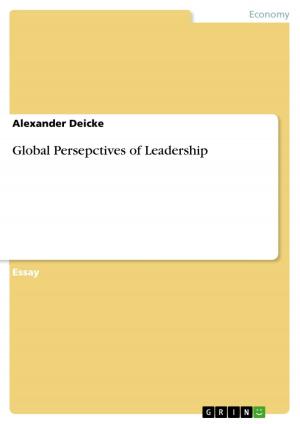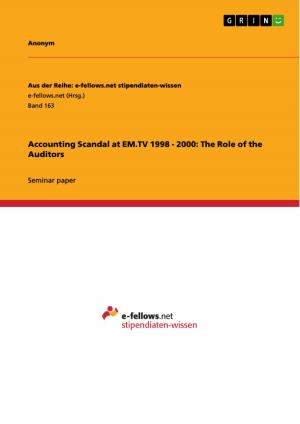Who can bring peace? The role of external actors in the Israeli-Palestinian peace-process
Nonfiction, Social & Cultural Studies, Political Science, International, International Relations| Author: | Julia Heise | ISBN: | 9783638379786 |
| Publisher: | GRIN Publishing | Publication: | May 21, 2005 |
| Imprint: | GRIN Publishing | Language: | English |
| Author: | Julia Heise |
| ISBN: | 9783638379786 |
| Publisher: | GRIN Publishing |
| Publication: | May 21, 2005 |
| Imprint: | GRIN Publishing |
| Language: | English |
Scientific Essay from the year 2005 in the subject Politics - International Politics - Region: Near East, Near Orient, grade: 63% (1,7), University of Edinburgh, course: The Middle East in International Politics, 69 entries in the bibliography, language: English, abstract: The Arab-Israeli conflict, the dominant theme regarding the International Relations of the Middle East, is'(...) one of the most bitter, protracted and intractable conflicts of modern times.' (Shlaim, 2005: 242). At its core lies the Israeli-Palestinian problem, which will be addressed in this essay and which mainly refers to the dispute between the Jewish and Palestinian national movements over Palestine.1 This dispute is multidimensional: '(...) religious, political, cultural, economic and psychological elements pile up and feed each other to create a seemingly indissoluble impasse.' (Korany, 2005: 64). Some attempts have been made in the past to find a peaceful solution for Israelis and Palestinians - but these did not result in the success that was hoped for. However, by considering several recent developments it appears that new opportunities to end the conflict are within reach. Against this background it becomes necessary to discuss the impact of Israelis, Palestinians and external actors on a possible peace, which will be the purpose of this essay. The paper first provides an overview about the main issues of the Israeli-Palestinian dispute. Section two then reflects on the development of the peace-process in the past and in this context analyses the roles of Israel, Palestine and external actors that were involved. This is essential to be able to draw a profound conclusion regarding the current situation, which is discussed in section three by addressing two questions: A) What are the chances for peace? B) Who plays a major role in this context? The essay concludes by answering the question of whether it is only the conflict-parties and not external actors who could bring peace. 1 Shlaim, 2005: 242. However, the conflict is complicated by inter-Arab relations and the involvement of outside powers.
Scientific Essay from the year 2005 in the subject Politics - International Politics - Region: Near East, Near Orient, grade: 63% (1,7), University of Edinburgh, course: The Middle East in International Politics, 69 entries in the bibliography, language: English, abstract: The Arab-Israeli conflict, the dominant theme regarding the International Relations of the Middle East, is'(...) one of the most bitter, protracted and intractable conflicts of modern times.' (Shlaim, 2005: 242). At its core lies the Israeli-Palestinian problem, which will be addressed in this essay and which mainly refers to the dispute between the Jewish and Palestinian national movements over Palestine.1 This dispute is multidimensional: '(...) religious, political, cultural, economic and psychological elements pile up and feed each other to create a seemingly indissoluble impasse.' (Korany, 2005: 64). Some attempts have been made in the past to find a peaceful solution for Israelis and Palestinians - but these did not result in the success that was hoped for. However, by considering several recent developments it appears that new opportunities to end the conflict are within reach. Against this background it becomes necessary to discuss the impact of Israelis, Palestinians and external actors on a possible peace, which will be the purpose of this essay. The paper first provides an overview about the main issues of the Israeli-Palestinian dispute. Section two then reflects on the development of the peace-process in the past and in this context analyses the roles of Israel, Palestine and external actors that were involved. This is essential to be able to draw a profound conclusion regarding the current situation, which is discussed in section three by addressing two questions: A) What are the chances for peace? B) Who plays a major role in this context? The essay concludes by answering the question of whether it is only the conflict-parties and not external actors who could bring peace. 1 Shlaim, 2005: 242. However, the conflict is complicated by inter-Arab relations and the involvement of outside powers.

